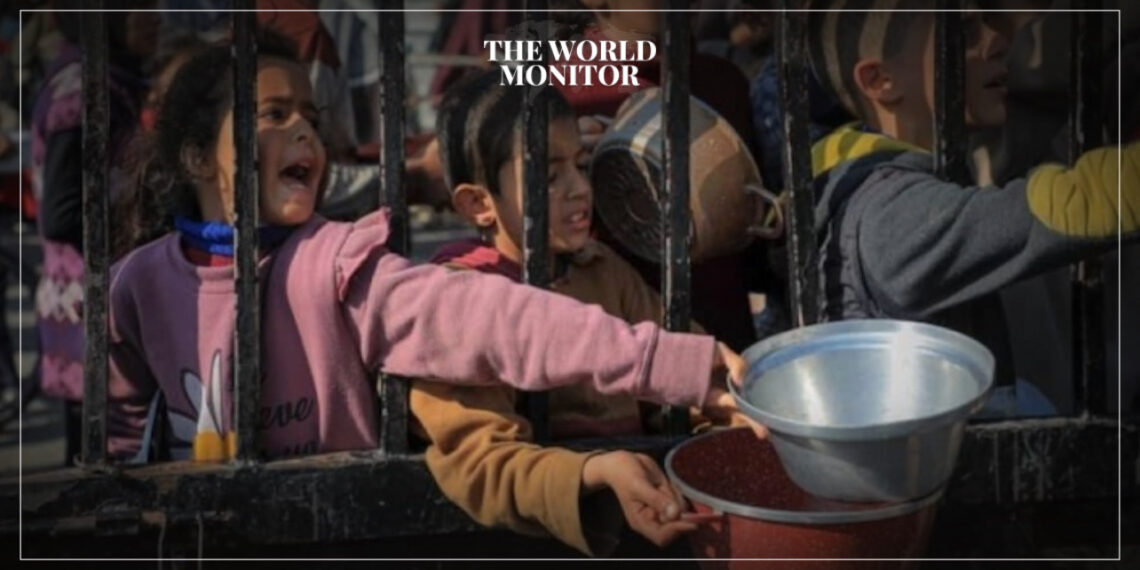Farhan Haq, the spokesperson for the United Nations, reported that the level of aid entering Gaza has reached its lowest in months, with no one in Gaza receiving their food rations this month due to restrictions on the entry of relief supplies. According to the Deputy Spokesperson for the UN Secretary-General, the World Food Programme has noted a stoppage in the entry of life-saving relief supplies to northern Gaza.
Haq stated in a daily press briefing, “No food aid has been received since the beginning of October,” noting that the main crossings into northern Gaza have been closed and would remain impassable if the escalation continues. He explained that the World Food Programme had distributed its last remaining food stocks in northern Gaza to partners and kitchens hosting newly displaced families, which would last less than two weeks. He mentioned that most of these kitchens, distribution points, and bakeries had to close, with others at risk of closure if the conflict persists.
Haq warned, “The situation has reached a critical point, including in southern Gaza,” adding that there is no distribution of food, and bakeries are struggling to secure flour, which might force them to close at any moment.
The humanitarian situation in Gaza is extremely dire, with significant challenges in food security, health, and sanitation. Since the beginning of the conflict, the flow of essential supplies, including food and medical aid, into Gaza has been severely restricted. The World Food Programme has been unable to distribute food aid in northern Gaza, leading to shortages that have forced many kitchens and bakeries to close, further aggravating the crisis.
In addition to food scarcity, there are critical shortages in water and sanitation services. The availability of clean water is drastically reduced, compounding the risk of disease outbreaks. Sanitation issues, exacerbated by the lack of necessary supplies like fuel for water treatment plants, pose serious health risks. The overall conditions have led to a “massive human rights crisis and a humanitarian disaster,” with many civilians, including children, struggling with basic survival needs.






